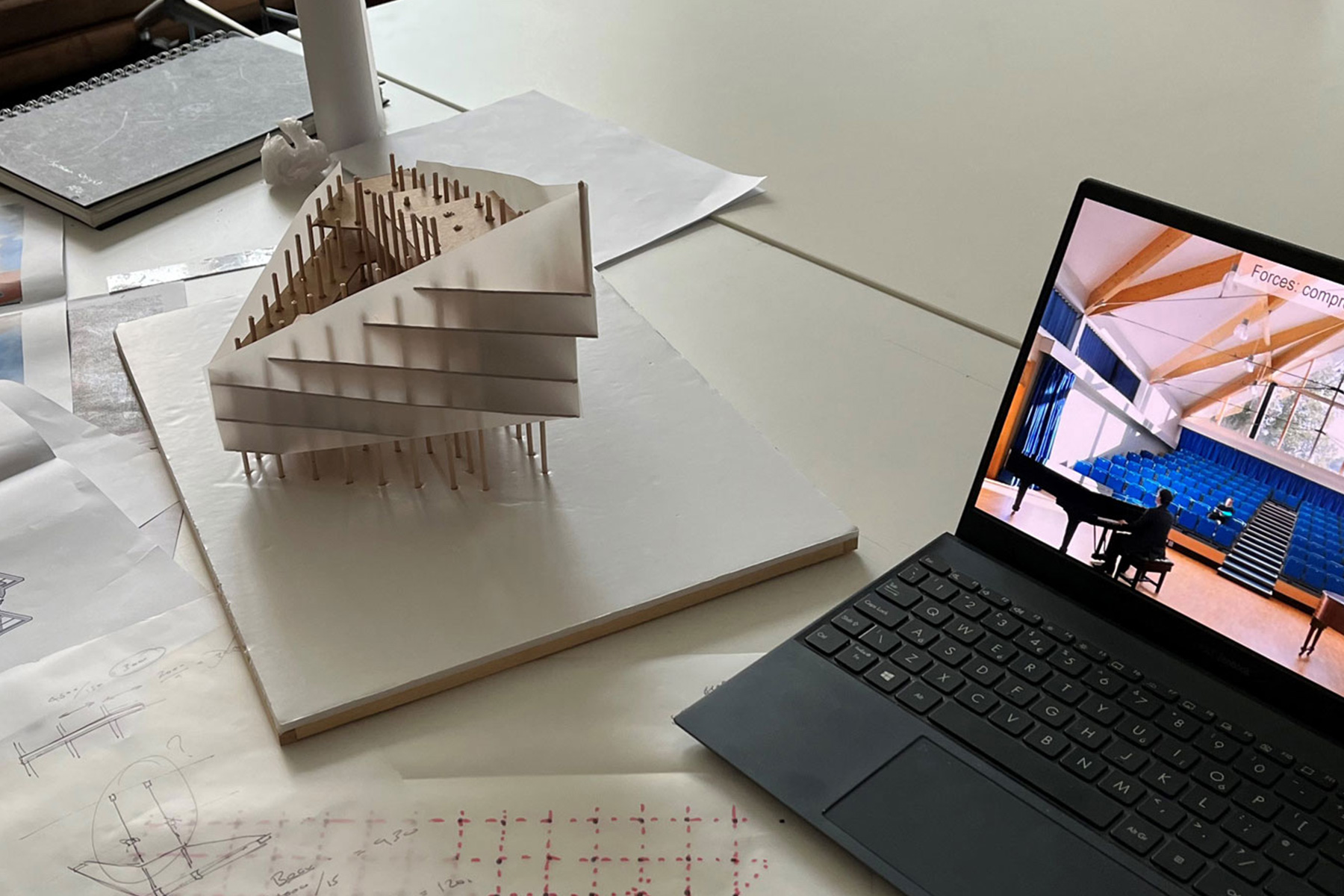

Why industry professionals might consider teaching in universities
4 March 2022
Integral Engineering Design support the next generation of construction professionals by providing lectures, leading tutorials and critiquing work at a number of universities. Here we ask some of the team about this experience.
Grant Stratton (GS) – Director, lectures 4th year students at the University of the West of England on the Architecture & Planning course and lectures on the Conservation Engineering module at the University of Bath.
Chris Gross (CG) – Associate, tutors the 4th year Civil Engineers on their design projects at the University of Bristol, School of Civil, Aerospace and Mechanical Engineering.
Maria Schaerer (MS) – Senior Engineer, tutors 3rd year students on their design projects at the University of Bath, Department of Architecture & Civil Engineering as well as critiquing 1st and 3rd year projects and the occasional lecture.
Joe Williams (JW) – Senior Engineer, tutors 3rd year students at University of Bath, Department of Architecture & Civil Engineering.
Q What reward do you personally get from your teaching work and are there benefits for Integral?
GS: The students have innovative and inspiring ideas which takes you away from your comfort zone which I find exciting. I like demystifying the engineering process and providing the students with the tools to understand how things work in principle rather than just getting caught up in the numbers. The benefits for Integral are that they have an engineering team who know what they are talking about and they are trusted to educate the next generation.
CG: I enjoy seeing the ideas the students have and how they develop and progress over the course of the project, they always approach problems in a different way to how I would which is refreshing to see. Tutoring gets our company name out there to the next generation of engineers which can have a positive impact on recruitment.
MS: Teaching is a great way to consider different and new design situations and solutions with less constraints of real life projects. It allows you to discuss options with engineering students, hear their ideas and develop their understanding through sharing our experience. For me it has built my confidence in my own understanding through the process of explaining ideas to others.
It has provided me with the opportunity of a different role/perspective. Critiquing ideas is a useful mind-set to have when reviewing our projects. Tutoring and critiquing takes place with other engineers and architects and this means we have the opportunity to share approaches.
JW: The tutoring I do is focussed on a joint design project where student architects and engineers work together to respond to a design brief which is similar to a multidisciplinary team in practice. As creative solutions are encouraged, it is a great experience for me as a tutor to think outside the box and away from typical forms and materials. This increases my knowledge to draw on in my day to day work. This is particularly true in sustainability where education is currently ahead of industry in its ambitions for low carbon construction. I would also add that teaching in and of itself is immensely rewarding and it is a privilege every year to look back at the work the students have produced.
Q Integral is a busy engineering practice – how do you find the time?
GS: You have to be realistic, it would be easy not to do any teaching because you are too busy but if you set the goal at what you can do, you make the time and prioritise like you would with project work.
CG: Knowing in advance when the tutoring is required allows me time to plan. Relatively it is a small amount of time compared to my overall working hours so I can fit it around other work.
MS: Sometimes it can be a push. However, most of my project teams are very understanding and positive if I explain that I’m tutoring on certain days. If clients, design teams and my colleagues are all aware of my availability in advance then it works well.
JW: I am able to accommodate this around my normal work load with good pre-planning on projects and communication with the teams I am in but it certainly helps that for me the days are nicely spaced. Integral are very supportive of their staff doing educational outreach and have always helped facilitate these activities.
Q What advice do you have for anyone who wants to provide a teaching role?
GS: Make the connections through industry and put yourself forward. Universities are interested in complementing their courses with experts from industry to supplement the academic perspective.
CG: Prepare for it like you would with any other aspect of your work. Go into it open to ideas from the students and be prepared to be surprised by their unconstrained thinking.
MS: Don’t assume that you need to know all the answers or have an immediate response. Asking a student to expand on their ideas can be one of the best ways to help them come to a solution themselves without you providing the answer. Often there are multiple options so be open to learning something too!
JW: Certainly I would encourage anyone who is interested to give it a go! One of the barriers, particularly for more junior staff, is imposter syndrome – you feel a bit odd teaching on a course you may have completed only a few years ago. This will quickly pass and you realise that you probably know a lot more than you think.




